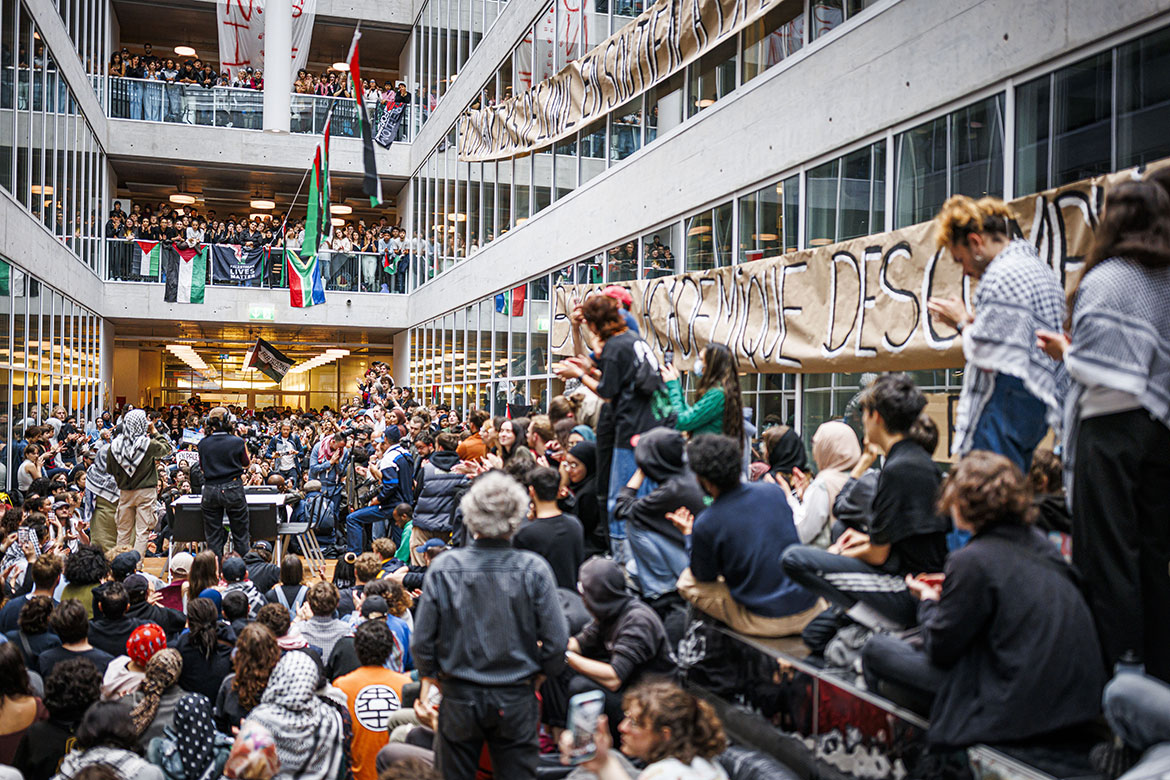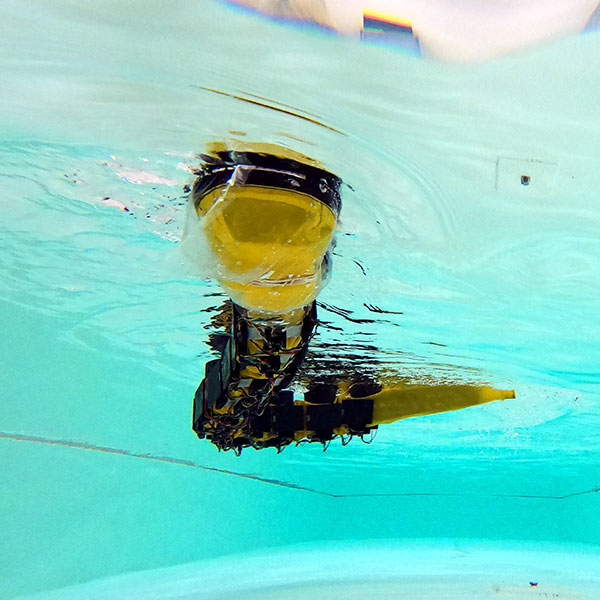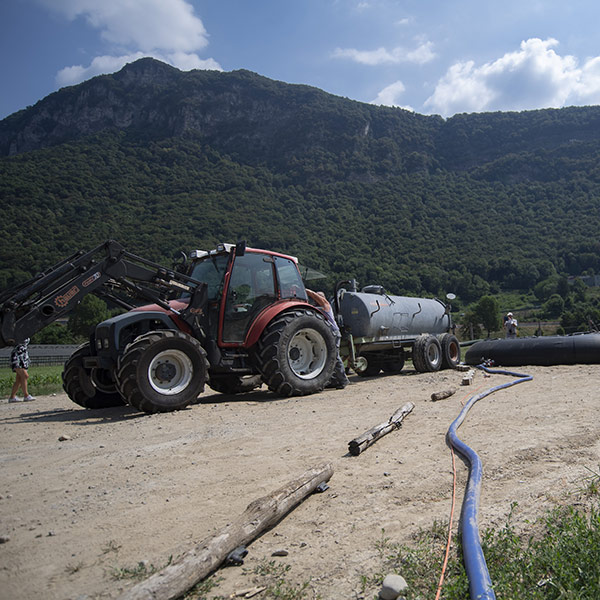SCIENTIFIC FREEDOM
“Neutral science communication” at university
The Grand Council of the canton of Vaud has instructed the University of Lausanne to engage in “neutral science communication”.

In May 2024, pro-Palestinian students occupied the Géopolis building at the University of Lausanne and demanded a boycott of academic institutions in Israel. | Photo: Valentin Flauraud / Keystone
The Gaza protests that took place early this year at the University of Lausanne also prompted a lively debate in the otherwise somewhat staid discussions in the Grand Council of Vaud, the cantonal legislature, about the multi-year plan of its cantonal university. In late August, a brief sentence added to the document in question became the focus of debate because it states that “science communication ought to be encouraged and developed in the service of society”. According to the daily newspaper 20 Minutes, Cédric Weissert, a member of the Council for the Swiss People’s Party (SVP/UDC), was apparently upset that the Gaza protests criticised researchers who were working with researchers who happened to come from Israel. This is why Weissert now expressly wants science communication to “respect scientific neutrality”. Carine Carvalho, a member of the Council for the Socialist Party and an employee of Lausanne University herself, complained that “researchers cannot remain silent when it’s a matter of scientific facts”. But the clause proposed by Weissert was added to the document anyway.
Since then, the media have remained quiet about the issue. But ‘scientific neutrality’ was being treated as a hot topic as recently as last May, when 20 professors of philosophy from all over Switzerland expressed their views in the newspaper Le Temps. They declared that, while they often disagree fundamentally, they were all in agreement that a university has to be politically neutral, as it might otherwise lose its credibility and its legitimacy. If people with diverging opinions are discouraged from expressing them, they said, then a university becomes dogmatic.
However, these philosophers also wrote the following: “An institution’s neutrality in no way prohibits its lecturers or researchers from having views of their own. They have the right to argue, in both teaching and research, in defence of any hypothesis, no matter how controversial or dissenting”. In other words, researchers must be allowed to engage in activism during their work. Having the freedom to campaign for something also encompasses the duties to (a) know and understand opposing views inside out, (b) refrain from stifling them, setting them out instead as clearly and compassionately as possible, (c) refrain from disparagement, rejecting them only on the basis of considered arguments.




